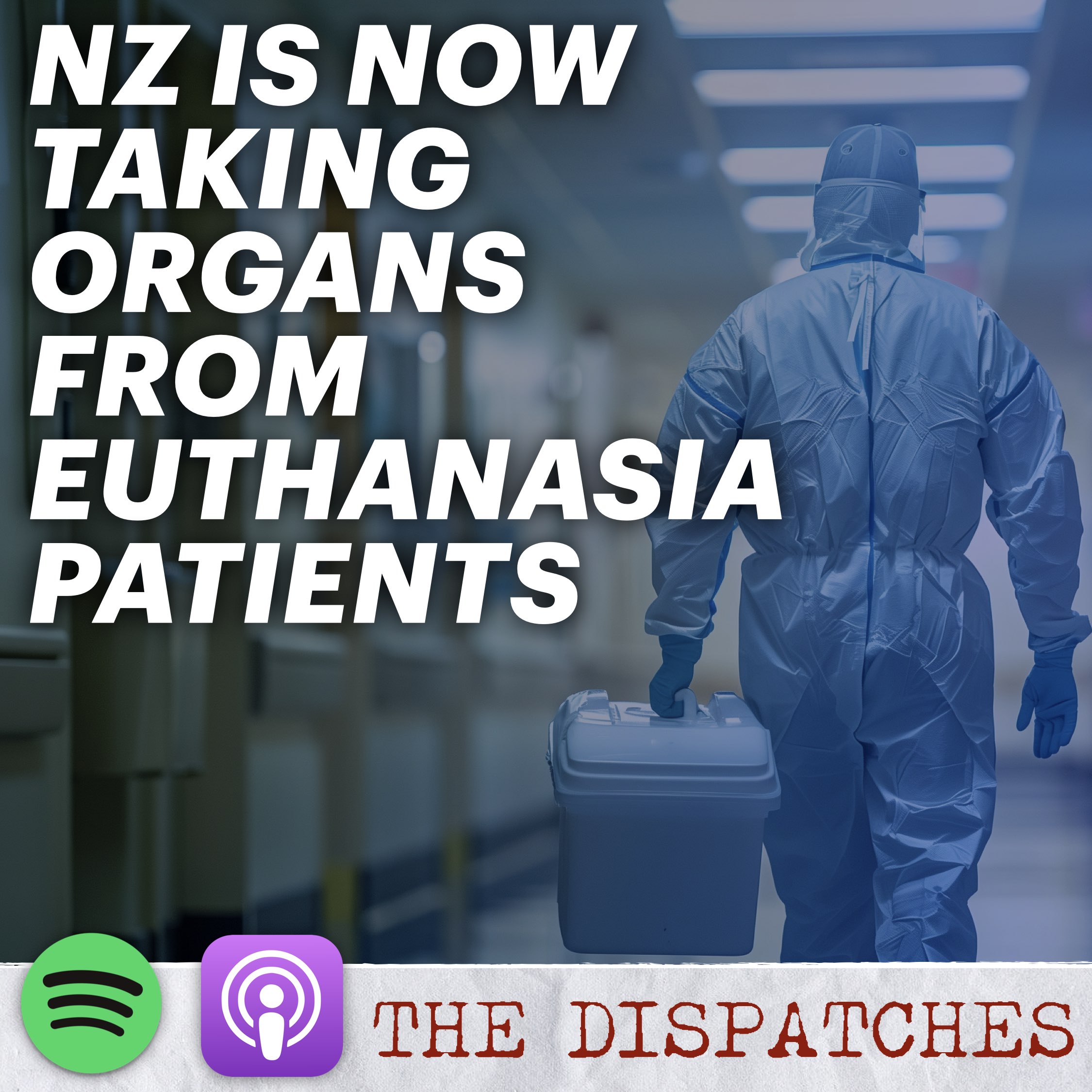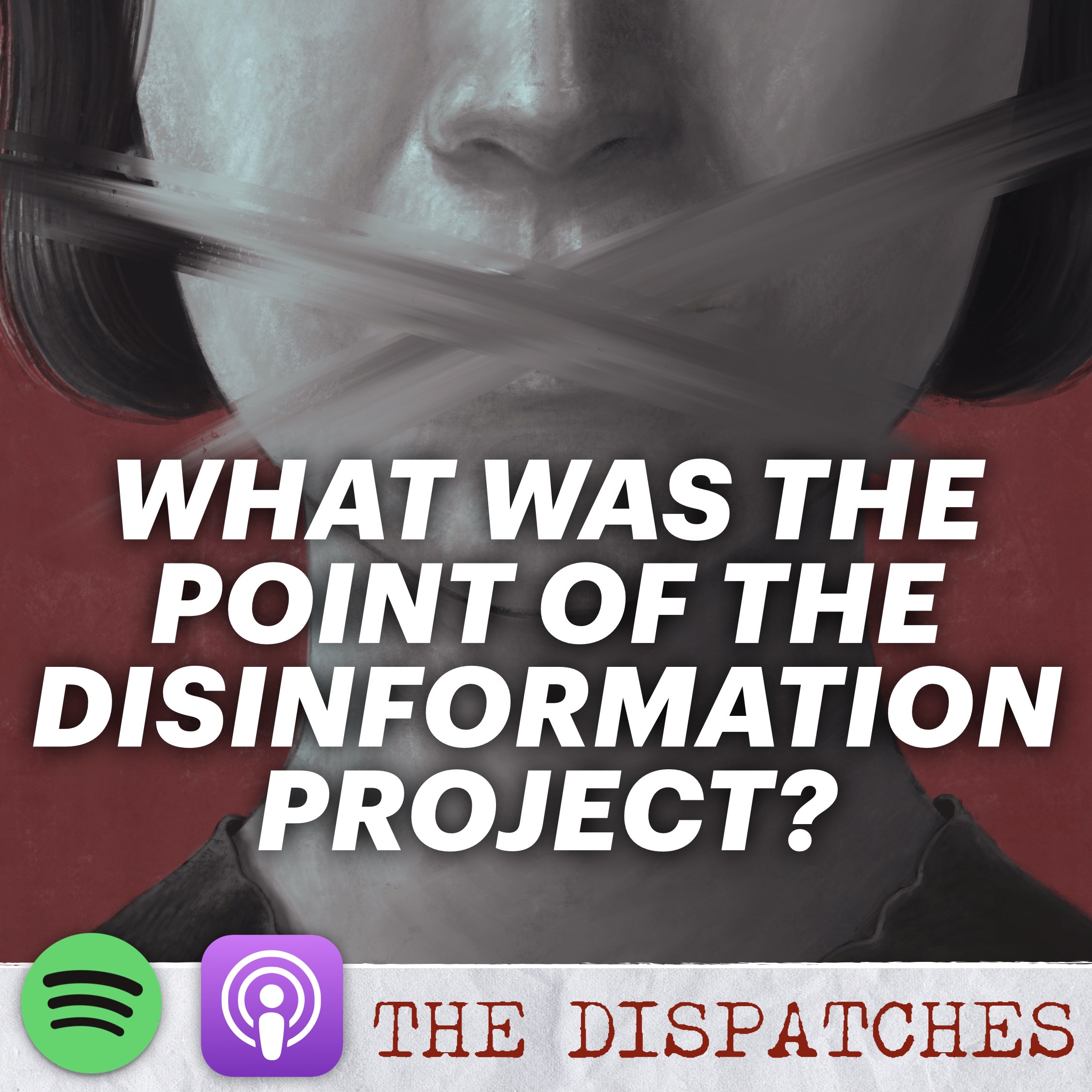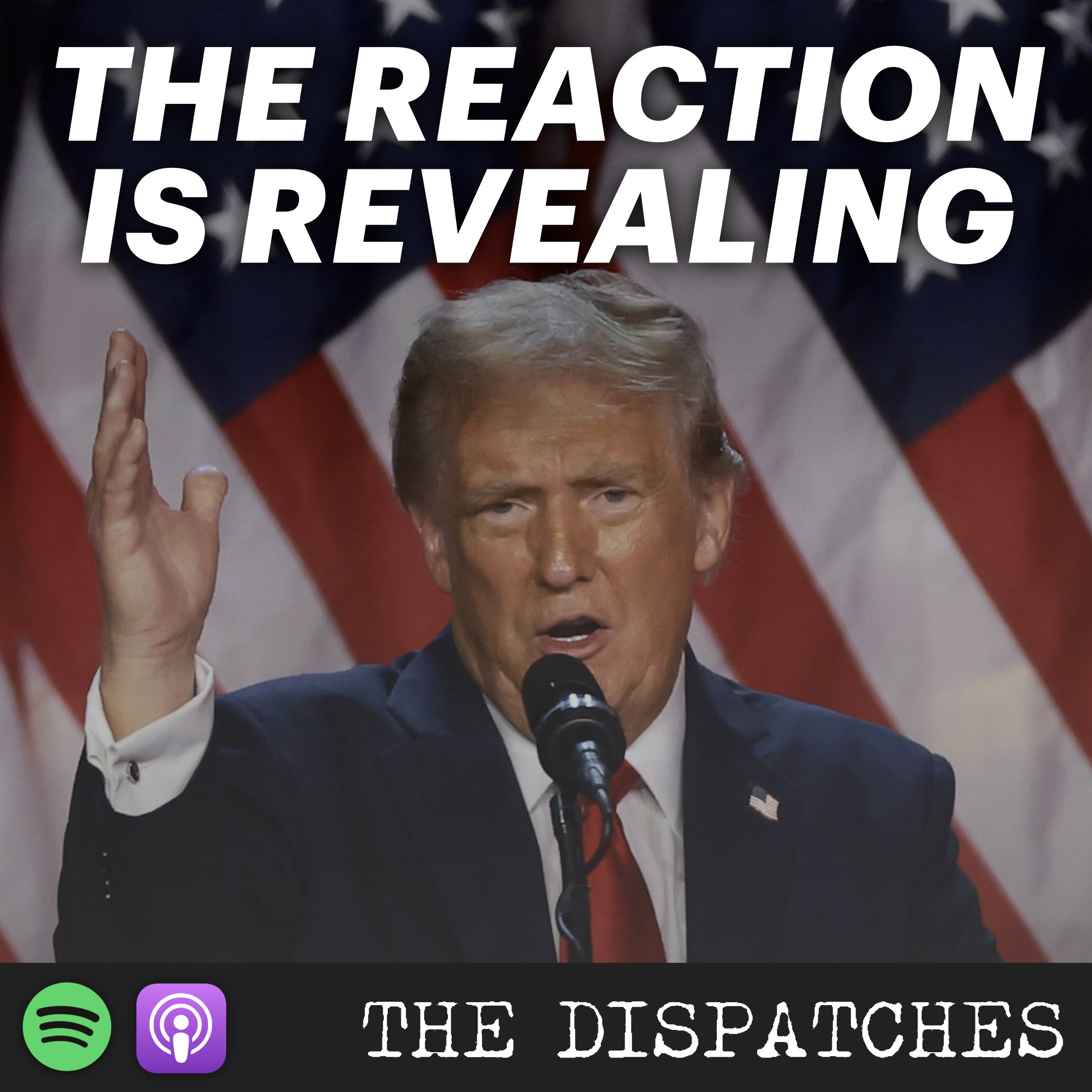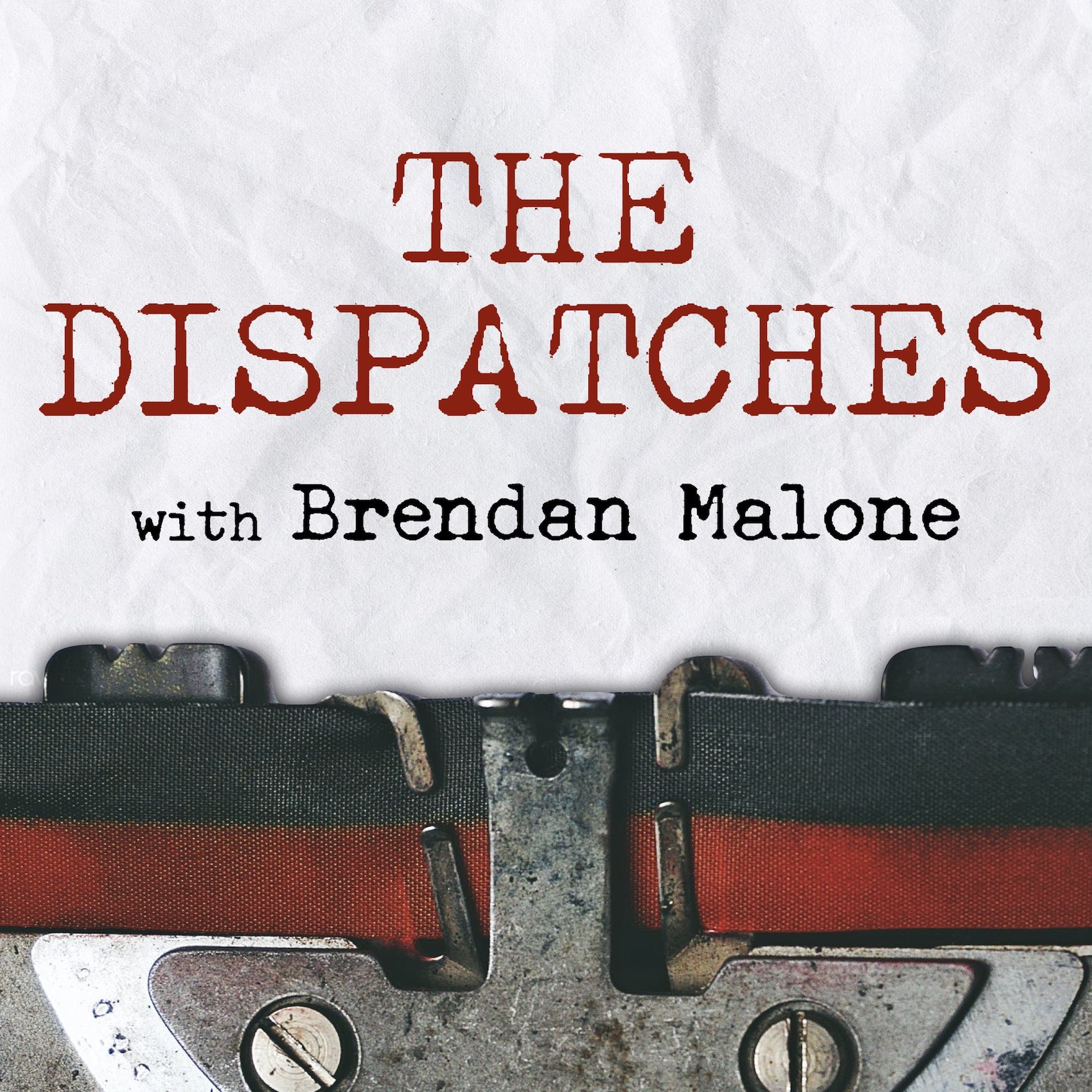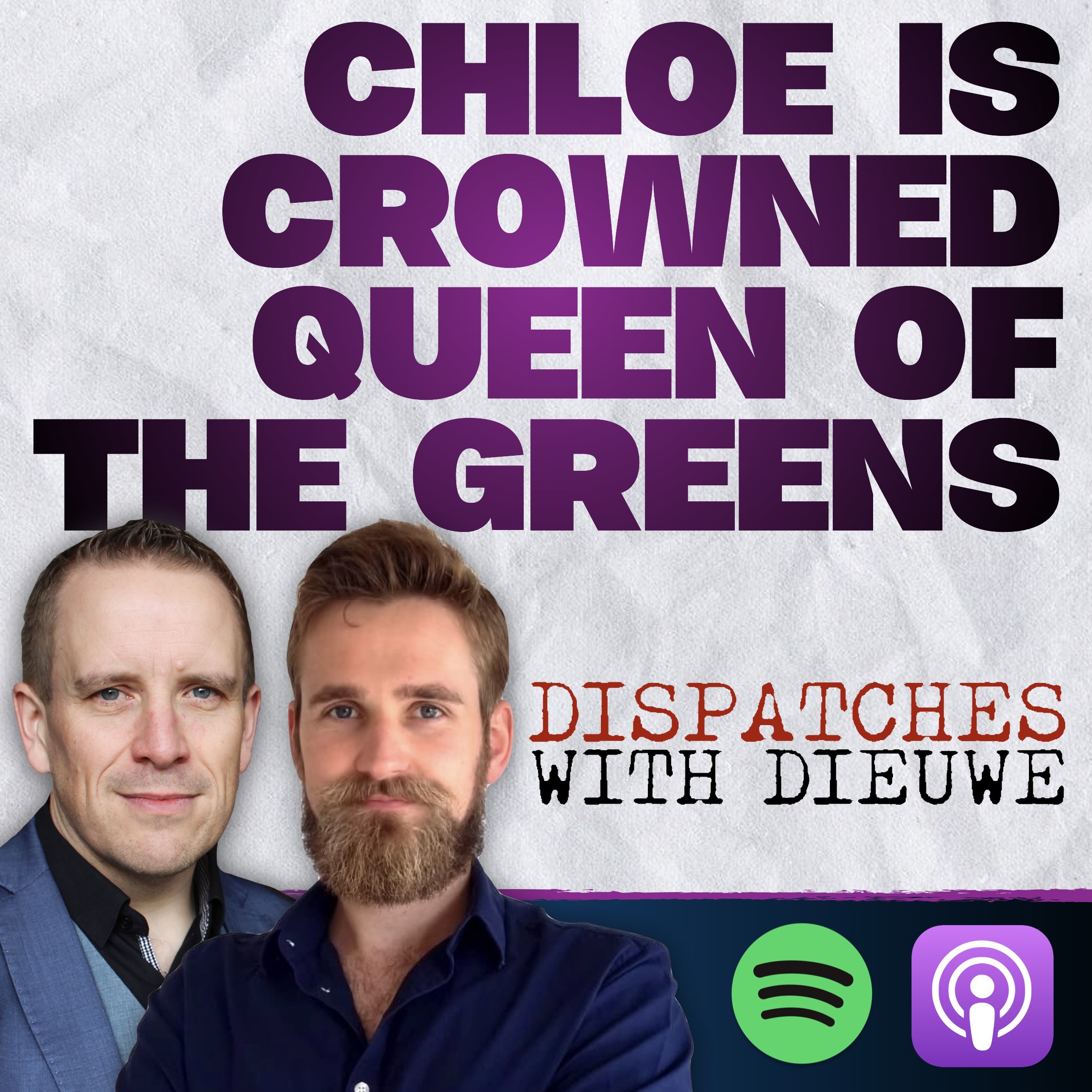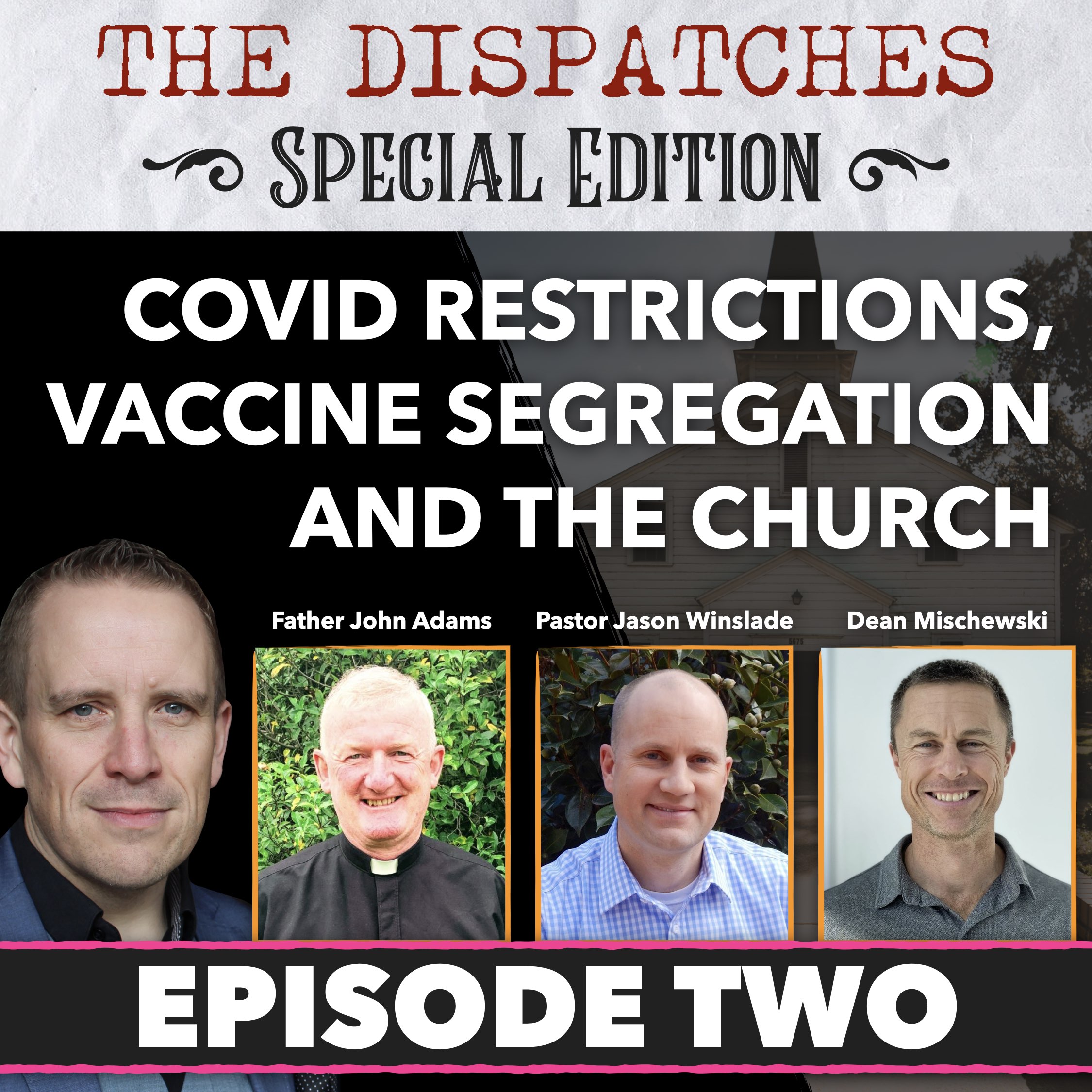[00:00:00] Hi everybody. Welcome along to another episode of the Dispatchers podcast. My name is Brendan Malone. It is great to be back with you again and today's topic of conversation is the ethical implications of the fact that New Zealand is now harvesting organs from euthanasia patients.
[00:00:19] Hi, my name is Brendan Malone and you're listening to the Dispatchers, the podcast that strives to cut through all the noise in order to challenge the popular narratives of the day with some good old fashioned contrarian thinking. You might not always agree, but at least you'll be taking a deeper look at the world around you.
[00:00:38] Just a quick reminder that if you're enjoying the content, please don't forget to give the show a thumbs up. And if you're able to give it some stars and a bit of a rating, whatever platform you're listening on now, if it allows you to do that, please do that. It all helps the show. And don't forget to share the episodes with friends and family if you find them valuable, maybe others will as well. Last but not least, if you're not already a patron and you want a daily episode of the Dispatchers podcast that's an episode from Monday through to Friday, go to patreon.com leftfootmedia and become a $5 monthly patron. The link is in today's show notes a huge thank you to all of our patrons. It's thanks to you that today's episode is made possible. Alrighty. What are the ethical implications of harvesting organs from euthanasia patients? And why am I talking about this? Well, just a couple of weeks ago, on the 11th of October, organ donation new Zealand, which is New Zealand's official organ donor agency, quietly posted the following update on their website. Its title is Assisted Dying Donation A New Conversation and here's what they had to say. Assisted Dying became available on Aotearoa, New Zealand in November 2021. About 800 people have chosen Assisted D, mostly due to a terminal cancer diagnosis and mostly at home with an IV bag to administer medications. Organ Donation New Zealand has been working with the Ministry of Health, Te Whata Ora, the transplant teams, GPs and assisted dying practitioners to develop a national strategy for assisted dying donation.
[00:02:21] First, it was determined through legal consultation that assisted dying donation can and does exist in compliance with New Zealand law. After that, we iteratively developed an ethics framework for assisted dying donation to provide appropriate safeguards and maintain public trust. I should note, as you're probably well aware by now, they did this without any public consultation and in what appears to be largely total secrecy, hidden from the public view. So hardly off to a great start if you're looking for public trust, in my humble opinion. We sought feedback from experts in palliative care and medical ethics, as well as presenting the principles to the CEAG at Totoka Tumae, Auckland. We have now submitted it to the Ministry of Health Assisted Dying Group for further feedback and will eventually submit it to the National Ethics Advisory Committee. The process for assisted dying donation has been specifically developed to be as similar to our current donation practices as possible. So far we have had about 20 referrals from motivated patients and GPs all over the country. We had had a couple of eye tissue donations and recently our first organ donation after an assisted death. It was a huge team effort. With support from overseas, we are now the seventh country in the world to have undertaken assisted dying donation. Our amazing donor coordinators and clinicians went above and beyond to support the wishes of an incredibly generous patient and their whanau who successfully donated her kidneys and lungs. Now, before we get into any of this, first of all, how could this actually happen? Well, what you have here is a classic example of something that you've heard me talking about on the podcast previously. This is technocracy. The unelected bureaucratic managerial class colluded and created a policy and then just started enacting that policy. There was no public oversight, no public consultation, there was no involvement of our elected representatives in this. A group of bureaucrats just crafted a brand new policy and then started doing it. And what's really troubling is that they are clearly stating in this particular statement, which was just quietly published on their website, that they have already started harvesting organs from euthanasia patients despite not having actually completed the feedback process. Just listen to what they say. We have now submitted it to the Ministry of Health Assisted Dying Group for further feedback and will eventually submit it to the National Ethics Advisory Committee. Yet the very next paragraph tells us that they have already started harvesting organs from euthanasia patients. I'm a little bit confused as to how this can even be happening if the Ministry of Health Assisted Dying Group have not provided their feedback and the National Ethics Advisory Committee haven't given their feedback. That seems to be the indication based on what's written in this public statement from them.
[00:05:47] Secondly, I think this is important to note. What you're seeing here is just an inevitable next step in legalised euthanasia. Once you open that particular Pandora's box, all sorts of other things start manifesting themselves as well. And by the way, this is not the Last of the things that we are yet to discover the hard way, that come as part and parcel of legalising assisted suicide and euthanasia. Thirdly, and I think this is really important as well, you need to understand euthanasia in a much bigger context, and that is the context of the fact that we are living in a corporatized, bureaucratized, technocratic state which is governing a society that has no longer any sense of sacred, transcendent, religious moral order, and which now has utilitarianism as its primary moral role. So is there utility in doing a particular action? If we can show a good outcome, there's some utility in it, then why wouldn't we do that thing? And also on top of that, we now live in an age of self gratification and rampant consumerism. We have built a world, we have crafted an entire civilization now upon consumption. So in that context, euthanasia isn't simply the ultimate act of liberalism. I will end myself and all my future choices with this one final suicidal act. But it's also another opportunity for societal consumerism and utility to be manifested. We have an increasing healthcare budget due to an increasingly ageing population. And that's just the fact of life. There's no problem with that. We have more elderly people than we have had previously. And that ageing population requires the lion's share of our healthcare budget. And they have earned that lion's share and they're totally entitled to it. But that also creates a problem when you're doing the budgeting and the accountancy, the economics of this and the resourcing that you have available, it suddenly doesn't quite all add up. Now, euthanasia deaths, on the other hand, in this current climate and with this current set of circumstances, they are a cost saving measure. They save the state money. We also now have disproportionately more people in need of donor organs than we actually do donors who have organs to donate. On top of this, harvesting organs under current circumstances is not as effective as harvesting organs from a patient whose death can be foreseen, planned and controlled. It's a far more effective way of harvesting the organs. This is the ideal conditions under which you would want to harvest organs. So when it comes to organ harvesting from euthanized patients, the state can both save money and meet another pressing healthcare demand in the most effective and efficient way possible. In this scheme, the human person is reduced to little more than a commodity, an object in the bureaucratic state's economic plan. And as if that wasn't enough, I think the way in which this has all come about also represents an institutionalised arrogance and disregard for the people of New Zealand. A major change has been wrought upon us without us even being made aware that it was on the table. Not even our elected representatives were debating this. A group of unelected technocrats simply decided they would start doing this and then crafted a policy to allow it. And then they started doing it. And it's quite interesting, they make the point that they had some legal consultation which told them there were no legal hurdles to them doing this. I've got to ask myself, in light of that, how many voters, and that's to say nothing of the politicians, were aware that the legislation was so poorly crafted that it didn't even cover some of these basic questions, like what about euthanasia and organ donation? Because there are some big ethical issues here, there are some risks, and I want to talk about those now because it's important to understand this, because I know some people out there will be tempted to say, well, what's the big deal? We've legalised euthanasia, it's just an organ donation. But it's under a slightly different set of circumstances, isn't it? There's no big deal here, it's just a slightly different form of patient death. Isn't the outcome still the same? Well, no, there are some differences here and those differences really matter. First of all, there is the risk of a brand new potential point of very serious and very powerful coercion that can be levied upon a patient. Now, so, for example, bad actors within a family who have ulterior motives and have some reason to gain from a premature death of a relative could actually utilise this new development as a point of emotional manipulation upon the person in their family who is suffering and dying. And I know some people out there are going to push back and they're going to say, brendan, that'll never happen. You've got such a low view of families. People love their parents. Yep. Thankfully, a lot of people do love their parents. They love their kids, they love their aunts, their uncles and their other relatives who get sick and ill. But guess what? There's also a lot of people out there who actually don't. We have a problem in this country already with something called elder abuse. And the most common forms of elder abuse are psychological and financial in nature. Sadly, the human condition is such that human beings will do awful things to each other, including the people who are closest to them. I wish it weren't so, but it is naive not to acknowledge the reality of the human experience and this particular problem associated with what's going on here. On top of this, you now have a group of medical staff who have been added to the process of assisted dying in these situations. And they will now be, metaphorically speaking, hovering about the patient in order to acquire their organs. Now, this new group of medical professionals, their primary concern is not the patient. Instead, their primary concern is the patient's vital organs and the needs of the donors who will receive them. And that's quite a radical departure from the other medical staff who are operating in the life of that patient. What happens when the way in which a patient dies in a euthanasia needs to unfold to a particular time schedule or in a particular way that is more beneficial to the organ harvesting team than it is to the patient? How is the patient to discern and understand all of this? You also have the risk of valorization of assisted suicide and euthanasia. So what previously would have actually been an act of despair because someone is lonely or perhaps feels that their life has no value or worth, all of a sudden, that patient comes to believe that they are more valuable dead than alive because they are donating their organs. And so all of a sudden, there's a valorisation of an act of despair. And on top of that, there is unlikely to be much in the way of proper scrutiny to ensure that those patients in those situations are getting the genuine help and care that they need not to fall into this trap, because the incentive here will be to actually get the organs and ensure that they go to people who need them. Then, of course, there is the risk of confusion for a patient and their family. You have competing interests at play now. It's not just the question of medical treatment and euthanasia. You now have this added interest of a group of medical professionals who want to acquire the organs from that person. And this creates the very real risk of uncertainty and a loss of clarity and even control for the patient and their family. In these situations, the medical establishment wields a lot of power. There is a very serious power imbalance in the doctor patient relationship. And what keeps that power in check, or what has previously kept that power in check, was the principle of do no harm, the idea that medical professionals could never deliberately do harm to a patient. But we've changed all of that now. We've actually, actually said that if a patient requests it, the doctor can actually do the ultimate harm to a patient. They can deliberately end their life. And this completely upends the previous relationship. We had and the question of the power imbalance. And in this particular situation, that's exactly what we're talking about, a medical establishment where there are now conflicting or competing interests, if you like, at play regarding this patient and their death. I actually think that this will become the preferred method of organ procurement. Now, it's probably not likely at this stage anyway to become the primary method, because I don't think as many organs will be harvested from euthanasia patients as they will be from other patients who have died in other ways. But for those who actually harvest organs, I think this will become their preferred method. Because what you've got here effectively is it creates a type of organs on demand situation which you don't have normally. Normally what happens is the patient actually has to die first and they die of their underlying causes or natural causes. And it's actually hard to predict when that will happen. There's uncertainty. So generally speaking, you don't have groups hovering around a medical patient waiting to actually harvest their organs, because generally there's not as much certainty about the time of death. But now this process will see medical professionals involved potentially for weeks and months in the life of that patient leading up to their time of death. And this creates all sorts of new complications and potential harms. And even the establishment of this process in and of itself will also create other new risks for New Zealanders, like the incentive to actively target euthanasia minded patients and their families for organ harvesting, or the disincentivising of authorities to scrutinise the practice of euthanasia or organ harvesting from euthanised patients as carefully as they should, because it's the most ideal way of acquiring organs for donors in a situation where there are far more people in need of donor organs than there are donors who have organs available. What are we going to do? Go back to the old and inferior way of acquiring organs? That's not how the bureaucratic managerial state thinks about such things. They have just opened up a brand new avenue of consumption to meet a need that is desperate. These things don't actually ever tend to get walked back. Instead, what happens is you get an incentive not to look too closely because this mechanism is serving another valuable purpose for the state.
[00:17:08] I actually think that in general, this will probably create greater risk of eroding public trust in doctors and nurses. And I know plenty of good medical professionals in this country and they don't want anything to do with this. And one of the reasons why they don't want anything to do with euthanasia and assisted Suicide is because they understand the great risk that it poses to the public trust in the medical profession. And I think adding organ donation, the harvesting of organs from euthanized patients, only makes that risk even greater, that public trust will actually be eroded. This approach wrongly assumes that death is autonomous when it's actually familial and communal. And even though it might be one single person who is euthanized, that person is likely to have family and friends who are around them or close to them at that time of death and as that process unfolds. And it's highly likely that in some of these scenarios, you're going to have family members asking themselves questions like, are they really acting for the best interests of my mum, or do they just want her organs? That question will now be part of the equation in some of these situations. And that kind of questioning and that kind of contemplating what's actually going on with the system and the state of affairs as they are, can't help but make its way out into the wider community, where it will become part of the broader communal and social conversation about the practice of euthanasia. So one of the unintended consequences from all of this, I think, could well be a decrease in organ donors. Speaking for myself, up until very recently, I was actually an organ donor. But I have now rescinded my organ donor status because I just don't feel that I have the level of confidence and trust that is necessary anymore in the state and our institutions to actually act according to the best interests of me, the patient and my family if we were ever to find ourself in this particular predicament. I just feel that these law changes create such a great level of risk and uncertainty that I can no longer proceed as I did previously. And I would not be surprised to discover that others are making similar decisions themselves. Or if they aren't rescinding their donor status, they're not as willing to become donors in the first place. And just to give you a sense of where all this could well end up heading, more than a decade ago, back in 2013, the New England Journal of Medicine published a paper titled the Dead Donor Rule and the Future of Organ Donation. So previously, we have operated according to the Dead Donor Rule. In other words, you can't harvest any organs until the donor is actually irreversibly dead. But now we've got a whole new way of doing things. And in this case, the death and the organ donation process are all intimately connected together in a way that they haven't really been prior to this and in this particular paper titled the Dead Donor Rule and the Future of Organ Donation, let me read to you this key bit from the abstract. The ethics of organ transplantation have been premised on the Dead Donor Rule. In other words, vital organs should be taken only from persons who are dead. But why shouldn't some living patients, such as those near death but on life support, be allowed to donate organs?
[00:20:42] Where will this all end up? Well, I don't want to predict the future, but I will say I think it would be extremely naive not to recognize the dystopian nature of what potentially lies ahead of us in New Zealand as a result of this. And I don't think that most Kiwis had any idea of the disastrous chain of events they were setting in motion back in 2020 when they voted in favour of legalized euthanasia without much in the way of an informed conversation in the public square before all of that unfolded. Thanks for tuning in. Don't forget, live by goodness, truth and beauty, not by lies. And I'll see you next time on the Dispatchers.
[00:21:30] The Dispatchers podcast is a production of Left Foot Media. If you enjoyed this show, then please help us to ensure that more of this great content keeps getting made by becoming a patron of our
[email protected] leftfootmedia link in the show notes. Thanks for listening. See you next time on the Dispatches.
